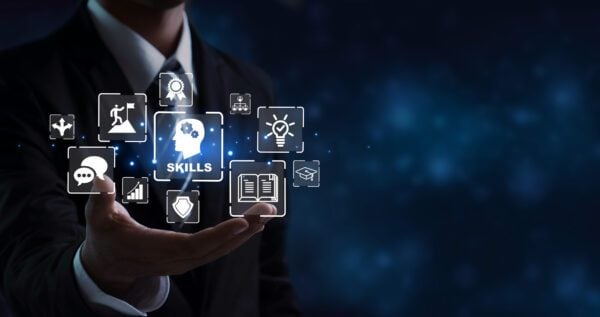Artificial Intelligence (AI) has become one of the most talked-about technologies ever, sparking both excitement and anxiety. But what exactly is AI, and how will it impact our lives?
Drawing on expert insights, we discuss the basics of AI, its capabilities, limitations and what it means for the future.
What Is Artificial Intelligence (AI)?
At its core, AI refers to computer systems designed to perform tasks that typically require human Intelligence. These tasks include learning, reasoning, problem-solving and even understanding language. AI is not a single technology but a collection of techniques that enable machines to mimic cognitive functions.
Akli Adjaoute, a 30-year AI expert and author of “Inside AI,” emphasizes that AI is a tool, not a sentient being.
“It is crucial for every citizen to acquire knowledge about AI, given its pervasive effect on our modern world,” Adjaoute said.
AI systems rely on algorithms — step-by-step instructions — to process data, recognize patterns and make decisions.
The different types of Artificial Intelligence

AI comes in many forms, each suited for specific tasks. Some of the most prominent types include:
Large Language Models (LLMs): These power chatbots like ChatGPT and Deepseek and enable them to generate human-like text based on vast amounts of training data. They excel at answering questions, writing content and even coding, but they lack true understanding.
Deep Learning Models: Inspired by the human brain’s neural networks, these models analyze complex data such as images, speech and text. They drive advancements in facial recognition, medical diagnostics and self-driving cars.
Rule-Based AI: This older form of AI follows predefined rules, making it useful for structured tasks like tax calculations or inventory management. Unlike machine learning, it doesn’t improve on its own.
Adjaoute notes that while AI can outperform humans in narrow tasks — like playing chess or detecting fraud — it lacks general Intelligence.
“There are areas where human cognition still surpasses AI,” Adjaoute said.
Will Artificial Intelligence take over jobs?
One of the biggest fears surrounding AI is that it will replace human workers. However, experts argue that AI is more likely to augment jobs than eliminate them.
“AI’s threat to jobs and civilization is a common myth,” Adjaoute said.
Instead of replacing humans, AI often handles repetitive tasks, freeing people to focus on creative, strategic or interpersonal work. For example, AI can draft emails, analyze data or assist in customer service, but it still requires human oversight.
Winnie and Antara, authors of “Own Your Future: AI for All,” stress that businesses must align AI with their goals.
“Is your organization’s North Star, goal or mission valid with the emergence of AI?” Winnie and Antara said.
Companies should view AI as a tool to enhance productivity, not replace human ingenuity.
How can AI benefit us?

AI is already making daily life easier in countless ways. Here are a few examples:
Personal Assistants: Voice-activated AI, such as Siri and Alexa, helps with reminders, weather updates and smart home controls.
Health care: AI aids in diagnosing diseases, analyzing medical images and even predicting health risks based on patient data.
Customer Service: Chatbots provide instant responses to common queries, reducing wait times while human agents handle more complex issues.
Education: AI-powered tutoring systems adapt to individual learning styles, offering personalized support.
Adjaoute highlights AI’s potential to solve real-world challenges but cautions against overestimating its abilities. The future of AI: Responsible innovation
As AI evolves, ethical considerations become increasingly important. Issues like bias, privacy and accountability must be addressed to ensure that AI benefits society.
Adjaoute emphasizes the need for transparency. “We’ll address ethical questions surrounding bias, fairness, privacy and accountability,”Adjaoute said. “Businesses and policymakers must work together to establish guidelines that prevent misuse while fostering innovation.”
Winnie and Antara advise organizations to define their AI strategy carefully, but Adjaoute aslo says that everyone will move at their own pace.
“If you don’t have an AI strategy, don’t worry,” Adjaoute said. “Different organizations are on different journeys. You just need to establish where you are on that journey.”
AI is a powerful tool with transformative potential, but it is not a magic solution — or a threat.
Understanding its strengths and limitations allows us to use it responsibly, enhancing both work and daily life. As Adjaoute puts it, the key is to separate fact from fiction and approach Artificial Intelligence with curiosity rather than fear.
Contact Multi-Media & Senior Sports Reporter Noral Parham at 317-762-7846. Follow him on X @3Noral. For more news from the Indianapolis Recorder, click here.
Noral Parham is the multi-media & senior sports reporter for the Indianapolis Recorder, one of the oldest Black publications in the country. Prior to joining the Recorder, Parham served as the community advocate of the MLK Center in Indianapolis and senior copywriter for an e-commerce and marketing firm in Denver.





